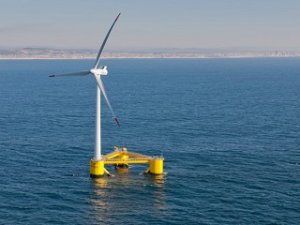Renewable Energy Saves Lives, Dollars

According to Dr. Dev Millstein of Lawrence Berkeley National Laboratory, the monetary value of the air quality and climate benefits associated with solar and wind are equal or more than state and federal financial support for these industries. That means renewable energy pays for itself–in hard-dollar cost reductions themselves.
Here’s more from Dr. Millstein on the monetary value of the 10-fold increase in wind and solar generation from 2007 to 2015: “The cumulative wind and solar air quality benefits were $29.7bn to $112.8bn–mostly from 3,000 to 12,700 avoided premature mortalities that would have stemmed from fossil-fuel generation” that was spewing vast amounts of dangerous pollutants, including particulates.
Again we see at work here the overarching principle by which renewables will achieve dominance in today’s energy market: pure economics. As discussed in “Bullish on Renewable Energy,” people will always take action to save money, and thus renewable energy, the bargain of the century, will soon win the day–regardless of our concern for the environment (or lack thereof).

Craig,
Moving on from self-serving dubious economic posturing, have you noticed this week has seen the announcement of two important advances in technology.
1) In a joint venture, Mazda (engineering) Toyota (IT,Metallurgy) have built a working prototype of spark-less ultra-high compression petrol engine.
This is a really big deal in terms of engineering. This would enable a much greater spread of hybrid technology since not only would the use of diesel diminish, but the price of hybrid technology drop considerably.
The environmental benefits are obvious.
2)Hyundai announced a new robust HFCV SUV with huge range, efficiency and long model life.
The new Hyundai SUV can achieve 800km (497 miles) a single tank.
Hyundai’s fourth generation HFCV can be mass produced at a competitive cost to it’s petrol model, but the running cost would be only 40%. Hyundai claims the new model exceeds 60%.
South Korea is ahead of schedule to build a network of 168 H2 refueling stations by 2020, and promises to have 780 by 2023.
The South Korean government has restricted the trial period to about 5% of South Korea’s total number of gas stations, although because existing gas stations can receive subsidies for installing H2 refueling facilities, that number may double.
(that figure doesn’t include military facilities, or military HFCV’s).
2023 will see the completion of the $1.9 billion government sponsored ten year trial commencing in 2012.
Toyota’s primary interest is finding new applications for it’s hybrid technology, and the Japanese government’s interest in HFCV development, especially as H2 can use Japan’s existing underutilized inter-island pipeline infrastructure.
Like it or not, these developments are certainly worth the attention of anyone interested in environmental technology.
Why would anyone not like to see developments in technology that result in a clearer planet? If this puts pressure on the electrification of transportation, that’s fine by me. Please keep us posted.
If I were betting, however, my money would still be on EVs, for a couple of reasons. One is that the cost of supplying gasoline is going to skyrocket and demand goes down and the economies of scale far apart.
Craig,
I agree my bet on EV technology having a ‘breakthrough with ESD capacity.
As for gasoline ‘skyrocketing’ due to a lack of demand, ….well that’s a bit farfetched ! Gasoline is really just a waste by product of the Petro-chemical industry.
With more than 3-4 billion engines currently operating on gasoline or diesel, and demand growing a more nations industrialize, demand will remain high for a long time,after advanced societies adopt EV’s as passenger vehicles.
Gentlemen! I suggest that you familiarize yourself with the new direction of renewable energy.
https://youtu.be/TPaCohzDRBU